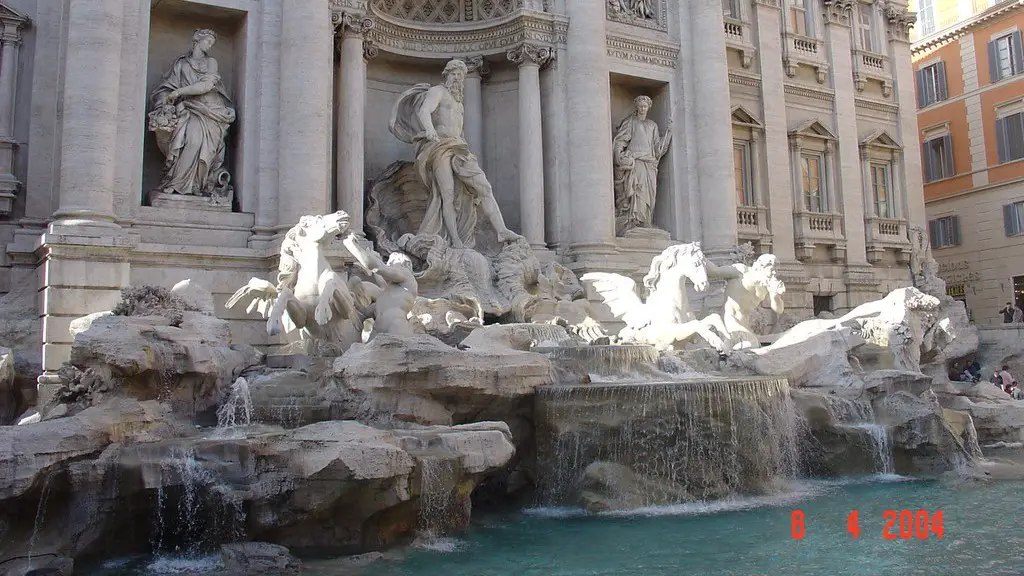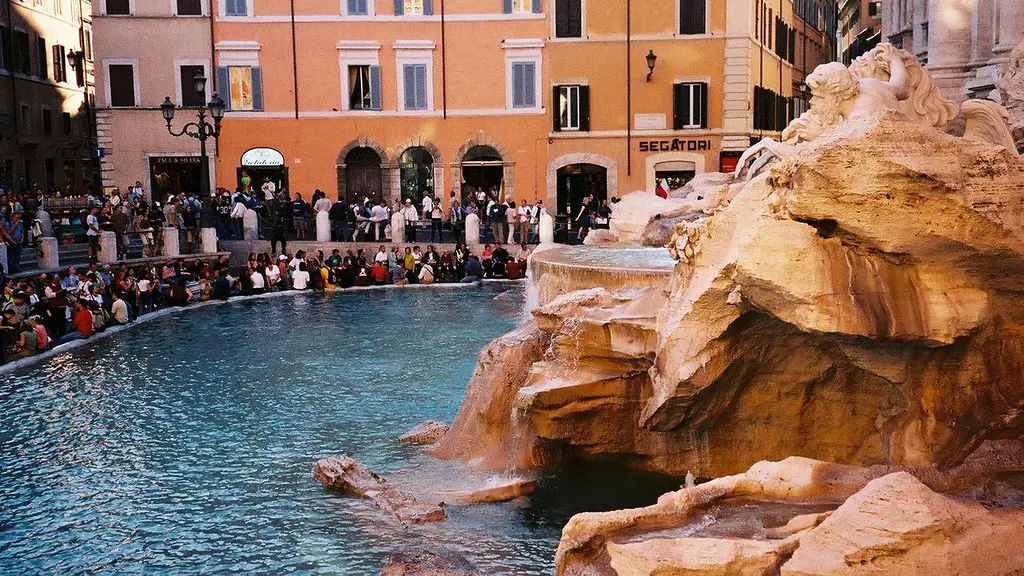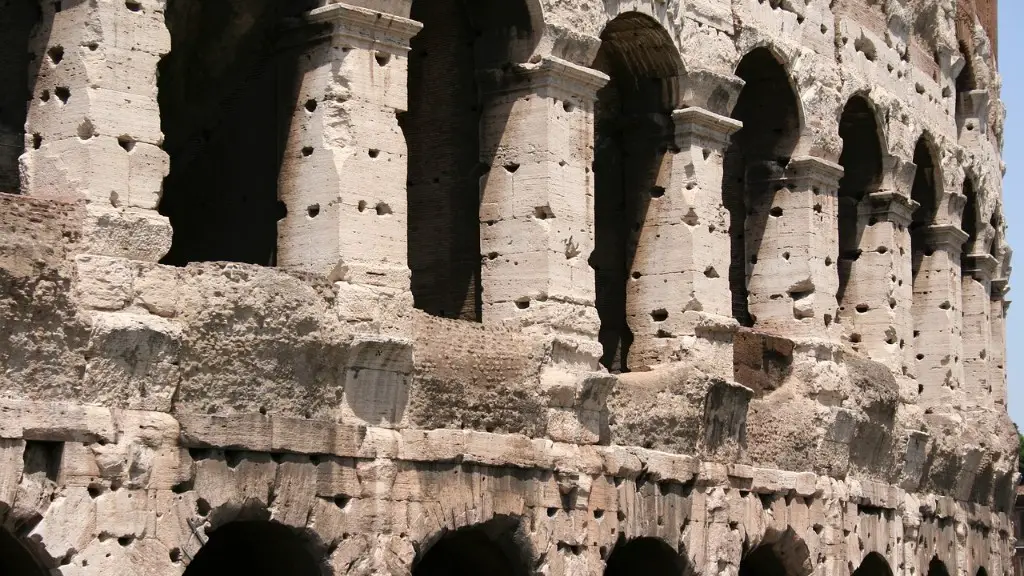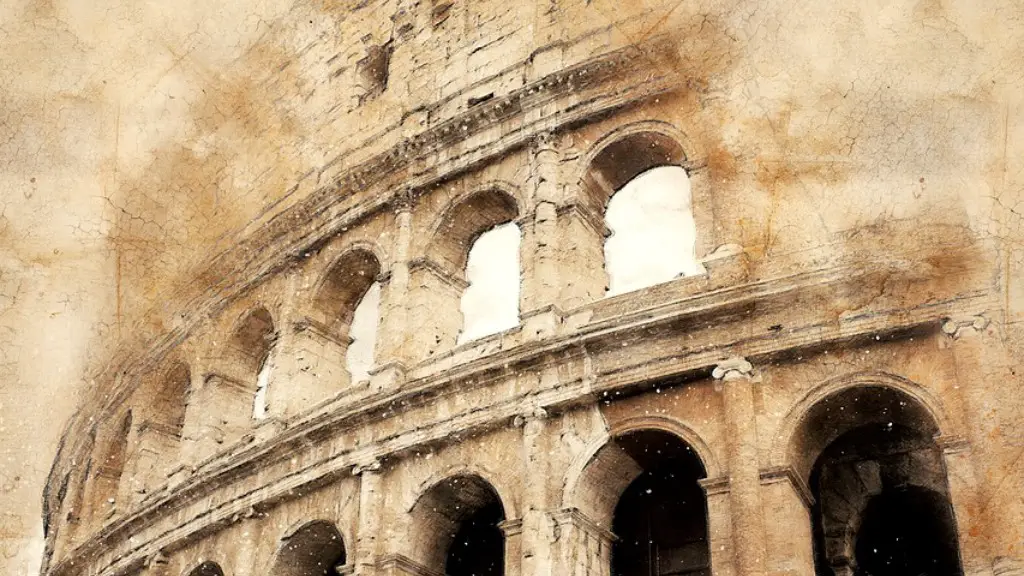The ancient Roman Empire held sway over much of the world from the 8th century BCE to the 5th century CE. Education was a cornerstone of life in this era and when it came to schooling, the ancient Romans had a longstanding tradition of learning both at home and in the classroom.
From primary school to secondary school, their education system was highly structured and rigorous. Although true college-level studies were not widely available until after the fall of the Roman Empire, primary and secondary education were offered in both rural and urban areas.
It is believed that primary education (grammar school) began in Rome around the 5th century BCE. Students around the age of twelve were taught by teachers called “grammatici” and studied Latin, Greek, reading, writing, and the history and culture of Rome.
Secondary school followed primary school and students attended this level of education until they reached the age of sixteen or seventeen. Here, students studied rhetoric, logic, philosophy, arithmetic, geometry, music, and astronomy. These studies were much more challenging than those taught in primary school and were largely reserved for the wealthiest members of society.
This system of education remained largely unchanged until the fall of the Roman Empire in 476 CE. By this point, the Roman Empire was in decline and many of the schools had closed or been destroyed. Those that remained open were often no longer able to offer the same level of education.
Following the fall of the Roman Empire, the traditional Latin language was slowly replaced by the vernacular languages of France, Italy and Germany. This shift made Latin, and the classical Roman education system, increasingly obsolete. Education became more informal and non-specific, with more emphasis on practical skills than on intellectual pursuits.
Today, many aspects of the ancient Roman education system remain. The Latin language is still widely studied in Europe, with most schools offering classes in both Latin and English. In addition, much of the philosophy and logic studied by the ancient Romans are still studied today, though with a very different emphasis.
Gendered Education in Ancient Rome
In ancient Rome, education was not the same for all genders. Girls received fewer educational opportunities than boys, making them less likely to acquire the skills needed to find a good job.
Girls were typically only allowed to be educated if they came from wealthy or influential families. As such, female education in ancient Rome was largely limited to the teaching of home management and service. This meant that girls were rarely able to access the same level of education as their male counterparts.
Though some girls from privileged families were able to attend the same grammar and secondary schools as the boys, this was the exception rather than the norm. The few girls who did attend school received a modified curriculum that focused on domestic and women-specific tasks.
This disparity in educational opportunities between men and women was further reflected in the pay gap that existed in the Roman Empire. Those who had received a higher level of education were typically paid more than those who had only received a basic education. This meant that women often were paid less for the same work as men.
Gender inequality in ancient Rome was widespread and education was just one of the many areas of life where women were excluded and disadvantaged.
Education in the Roman Senate
Although the vast majority of citizens did not attend school, there were a few exceptions. The most notable of these were the members of the Roman Senate, the governing body of the Republic.
Members of the Senate had to pass a set of tests and examinations to prove their merit and eligibility. This included knowledge of Roman law and a mastery of rhetoric and logic. In addition to these tests, Senators also had to demonstrate their wealth and social standing.
Those who passed the tests and examinations were admitted to the Senate, where they received a more advanced education in politics and government. This education was essential to their roles in the Senate, as they needed to have a thorough understanding of the laws, policies and regulations of the Republic.
The education received in the Senate was much more advanced than anything taught in the grammar or secondary schools, and was reserved only for the most privileged and educated individuals.
Significance of Education in Ancient Rome
As with any ancient society, education held a high value for the Roman people. Education was seen as a way to learn about the past and prepare for the future. It was also seen as a way for citizens to gain a better understanding of the world and their place in it.
For those who were privileged enough to attend school, the education they received was incredibly important. It provided them with the knowledge and skills they needed to find success in their chosen profession and to succeed in their long-term goals.
For those who were unable to attend school, they often relied on informal education such as apprenticeships and on-the-job training. This gave them the opportunity to learn the same skills and knowledge as those who had attended school, but without the same level of certification.
The End of Ancient Roman Education
The ancient Roman education system came to an end in 476 CE when the Roman Empire fell to the Germanic Visigoths. The fall of the Empire ushered in a period of turmoil and chaos, and many of the schools and universities that had been established during the Roman period closed or were destroyed.
Though the tradition of formal education remained in some areas, it no longer followed the same Roman model. With the introduction of Christianity and the emergence of the Christian Church, education soon became more focused on religious studies rather than classical education.
Legacy of Ancient Roman Education
Despite the fact that the ancient Roman education system no longer exists, its legacy is still felt today. The Latin language is still studied in many schools and its influence is seen in many of the words and phrases we use today.
In addition, many of the ideas and philosophies that were studied in ancient Rome, such as rhetoric and logic, are still studied today. This is testament to the lasting significance of the education system of ancient Rome.
Impact of Ancient Roman Education on the Modern World
The impact of ancient Roman education on the modern world is immense. Its influence can be seen in everything from the Latin language to the legal systems of many countries today.
The Roman education system also provided a standard of education that had never previously existed. It is thanks to the Roman Empire that we now have schools and universities all over the world, and we owe much of our knowledge and understanding of the world to the education system of ancient Rome.
Contemporary Relevance of Ancient Roman Education
The modern world is constantly changing and evolving, and with it the relevance of ancient Roman education is changing too.
For example, the traditional Latin language is no longer widely studied, as vernacular languages have become more relevant. Though Latin is still studied in some areas, its importance has diminished over time.
In addition, the importance of classical education has been superseded by other forms of education. More emphasis is now placed on specialization and technical skills rather than a classical education. This shift has had a profound effect on the way education is approached today.
Despite these changes, the legacy of the ancient Roman education system still remains. The importance of knowledge and education is still widely valued, and the core ideas and philosophies embraced by the ancient Roman educator are still relevant and applicable today.





